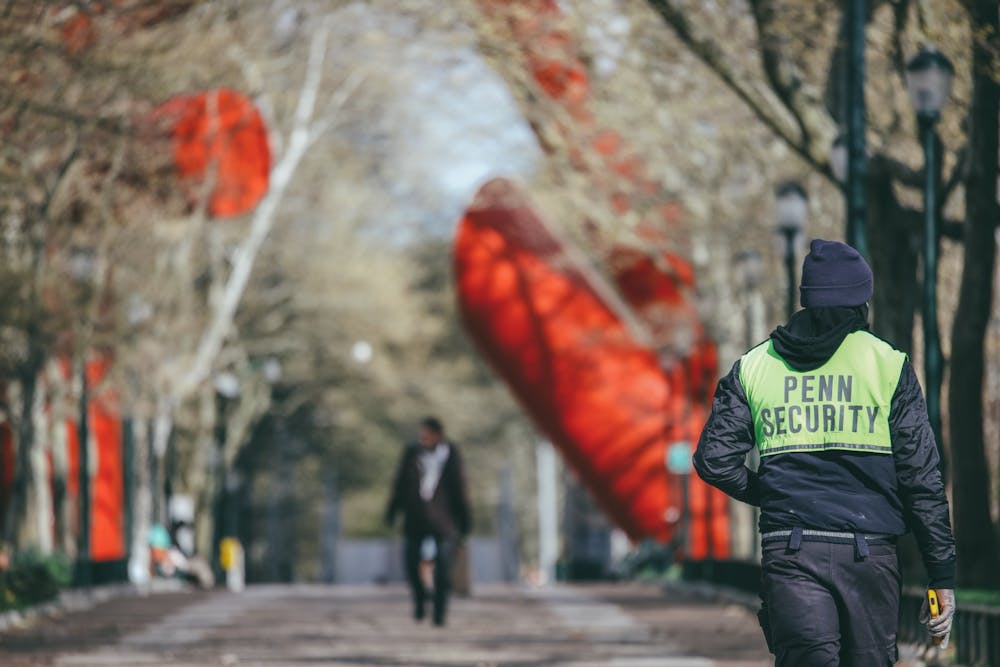
Although Philadelphia has witnessed rising cases of violence and crime during the COVID-19 pandemic, Penn's Division of Public Safety insists that crime on campus heavily decreased in 2020.
According to a recent analysis by The Daily Pennsylvanian, DPS dealt with 1,027 crimes between September 2019 and November 2020, ranging from minor offenses such as drunkenness to serious crimes such as sexual assault. Incidents of theft have been the most common type of crime during this period.
Vice President for Public Safety and Superintendent of the Penn Police Department Maureen Rush said that DPS has seen major decreases in crime over 2020 due to people staying inside because of COVID-19.
The DP Analytics team analyzed 993 of the 1,027 crimes reported to DPS between September 2019 and November 2020 through data acquired directly from DPS via a request to its records department. Thirty-four of the 1,027 crimes were excluded from the DP's analysis because of malformed or incomplete data.
The data included the dates crimes were committed and reported, the type of crime, the current investigation status, as well as the location where the crime was committed.
Many of the crimes DPS responds to are incidents that occur within the Penn Patrol Zone of 30th Street to 43rd Street, and Market Street to Baltimore Avenue.
Within the Penn Patrol Zone, thefts comprise over 65% of the total 993 crimes committed between September 2019 and November 2020. Assault and fraud — 9.7% and 7.2% of total crimes, respectively — are the next most prevalent categories of crime.
Rush said that, while theft is the most frequently committed crime, Penn Police saw a 34% decrease in retail thievery this year.
DPS divides crimes into four primary categories of theft, assault, sex crimes, and fraud. Those designated as "other" contain incidents of vandalism, arson, curfew violations, and other such activities.
While DPS investigated a decreasing number of crimes since COVID-19 hit Philadelphia in March, the analysis finds that total number of crimes investigated in the last 14 months has not been significantly higher than those investigated in previous years.
The two major spikes of crime activity are from 11 a.m. to 1 p.m. and from 12 a.m to 1 a.m, with the vast majority of crimes committed during the daytime.
Though several more serious crimes, such as assaults and sex crimes, see more arrests and investigations, Rush said that DPS responds to all crime with equal priority.
Rush added that while the Philadelphia Police Department is currently "overwhelmed" with a significant amount of criminal cases beyond what their resources can handle, DPS has comparatively smaller volume of crime to respond to and thus can pursue all leads regardless of the severity of the crime.
If DPS' resources are stretched by several simultaneous incidents, Rush said they follow a standard prioritization system, with first priority being "crimes against a person." These include homicide, sex offenses, assault, and burglary.
"Everything is important to us, but the most serious crime is the first one we respond to," Rush said.
"Active" crimes refer to those still under investigation, and an "arrest" signifies that a suspect was successfully taken into custody.
The majority of crimes DPS responds to occur in the surrounding regions north, west, and south of campus, and the number of crimes actually committed on campus is comparatively quite low. A significant cluster of crimes that do occur on campus take place in the vicinity of the Hospital of the University of Pennsylvania.
Rush stated that Penn's campus is heavily patrolled by both Penn Police and Allied Guards and is monitored at all times with video surveillance cameras and blue light phones, and said that it is, therefore, extremely safe.
"We're 365, 24/7," Rush said.
The Daily Pennsylvanian is an independent, student-run newspaper. Please consider making a donation to support the coverage that shapes the University. Your generosity ensures a future of strong journalism at Penn.
Donate




